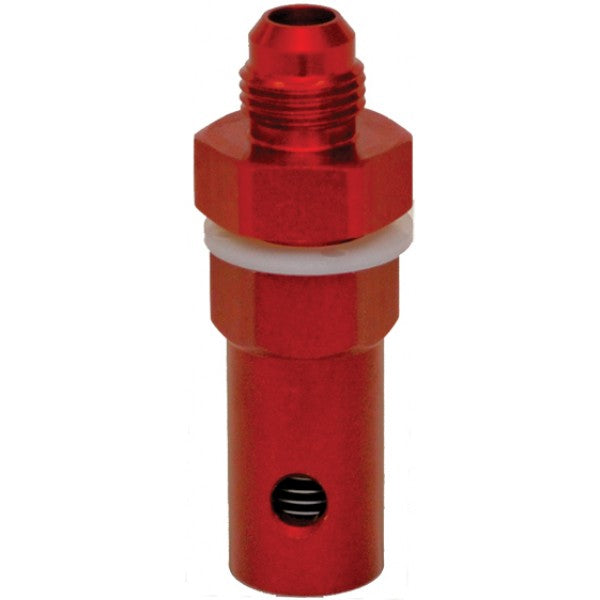
A safety net with holes big enough to accommodate small animals and toddlers will ensure your family's safety while swimming. It is easier for children with small hands to slip through the net than full pool covers. Floating buoys are another great way to mark the deep end of a pool, while safety net lines float on the surface of the water to delineate the deep end. These buoys remind kids to avoid the shallow end. Safety is paramount, so make sure you enforce the rules of your pool and follow them.
Mesh pool fencing
Mesh pool fencing has many benefits. They are easy to install, cost-effective, and durable. Mesh pool fences offer safety as their greatest advantage. These fences should meet ASTM standards, meaning they have been tested and verified safe by an independent laboratory. Additionally, they must be easy to maintain and clean. Here are some tips to help you choose a mesh pool fence. Remember that mesh fences must be surrounded with a solid material.
The cost of a mesh pool fence ranges from $16 to $25 per meter. Installation costs vary according to the type and size of the fence. A 10-foot section of fence would run around $90. You will need to rent a drill guide and a core drill. It is possible to install a complete surround. Instead, consider installing landscaping or physical barriers. Safety pool covers is another option. These non-removable safety covers can hold the weight of a small child, or a four-wheeled automobile.

Alarms for underwater motion pools
Underwater motion pool alarms sound an alarm when an object is dropped into the water. These devices are often battery-powered and can easily be mounted in a variety ways. The most popular way to attach them is to a collar for dogs. They run on a 9 volt battery and can last up one year. They are also easy to use and affordable.
Some are infrared and others are floating. These are most effective for larger pools. They can also be installed poolside. Underwater sensors are less likely than floating pool alarms to set off false alarms. A magnetic alarm key is not easy to use but provides more security. The Lifebuoy Pool Alarm System, for example, costs $300. The poolside installation of infrared alarms is also possible. They are powered by a 9-volt battery. Although it is the most cost-effective option, the Lifebuoy system requires drilling holes into the pool's side. The main benefit of the Lifebuoy system is its ability to detect changes in water pressure. This makes false alarms less likely.
Anti-entrapment drain covers
After Virginia Graeme Baker, a sevenyear-old girl drowned, the introduction of anti-entrapment pool covers was made. Baker became trapped in a drain cover that was defective due to suction entrapment. Her family and close friends immediately set about finding a way to stop the entrapment. A few years later, the VGB Act was passed into law.
Anti-entrapment Drain Covers are a great safety precaution for spas and swimming pool owners. These covers fit easily onto existing main drains and provide a cost-effective, but effective safety feature. It is no longer possible to find older types of suction outlets covers and antivortex drain covers. Before installing drain covers, pool owners should consult a professional for safety reasons. You can call a member of the PHTA to inspect the drain cover and prevent drownings.

Electrical safety for pools, spas
Safety in swimming pool electrical systems includes placing power cords and portable lighting devices, as well as routine panel inspections. This includes hot tubs and spas. It is important to be aware of power lines, especially underground ones, as they may accidentally come into contact with water. Below are tips to increase safety, and ensure compliance of the NEC. Listed below are the basic electrical safety requirements for swimming pools, spas, and hot tubs.
In summer, outdoor receptacles must be covered and dried. Ground fault circuit interrupters, or GFCIs, are another great way to prevent electrocutions. GFCIs, which are portable and easy to install, cost $12 to $30. Keep cords and electrical devices at least 10 feet from water. Avoid using wet hands when handling electrical devices, especially if there is water.
FAQ
Can I be arrested for using my stun guns?
No. Stun guns may be considered "less fatal" weapons. Less lethal means they cannot cause serious injury.
You could be charged even if your stun gun accidentally hits someone.
What should I look out for in a self defense class?
Consider the reputation of the instructor and their experience in self-defense classes. Ask about their credentials.
Ask for discounts or free trials. You may be eligible for special discounts and offers from instructors who teach new students.
Ask if they offer online classes so you can take advantage of them whenever you want.
Ask about whether they offer emergency medical care following a class. This is especially important if someone gets injured during a class.
You should look for classes that offer a wide range of exercises. This means that you will get plenty of time to try each technique before moving on to the next one.
What's the best weapon you can carry for self defense?
Sharp knives are the best weapon you can use to defend yourself. A knife is the best weapon for self-defense.
A $100 folding knife is not necessary to be protected. You can get the job done with a simple knife and a pocketknife. A few extra tools are available to help you be ready for any scenario.
What is your most effective self defense technique?
Avoiding attack is the best defense. If you are attacked, then run away as fast as possible. This will give you the time to consider a better strategy.
If you can't escape, you can use the defensive strategies you have learned. These include punches or kicks as well as knees. You can also grab your attacker's legs or arms to stop him from attacking further.
If none of these options work, you must fight back with whatever means available to you. The best weapon to use for this purpose are your naked hands. If you don't know the proper way to use them, then you should start learning other forms of self-defense.
Statistics
- Most likely, you'll get tapped out by 90% of the people in your first 3-5 months. (mmaclan.com)
- Most likely, the person will want some kind of boxing match, so if you can out-box them, this would be 100% ideal for survival. (budodragon.com)
- In a January 2018 survey of 1,000 women nationwide, 81 percent reported experiencing some form of sexual harassment, assault, or both in their lifetime. (healthline.com)
- Some people walk into a gym thinking they are going to become the best by training whenever they like and not putting 100% effort in. (budodragon.com)
External Links
How To
Which kind of self-defense do I need to learn?
Self-defense encompasses many different options. There are many different kinds of self-defense that you can learn. These are the most commonly used:
-
Boxing – Because you can fight with your hands, boxing makes a great self-defense option. People think that only boxers can be female, but they can. Boxing can be learned by women through a variety of methods including private lessons, gyms and online courses.
-
Wrestling is a true sport. Wrestling was once America's national pastime. Private lessons, gyms and online classes are all available for women who want to learn how to wrestle.
-
Jujitsu: Jujitsu can be described as another martial art that teaches how to defend your self using your body weight. It is very easy to learn. You will improve your balance and coordination.
-
Kickboxing: Kickboxing uses kicks and not punches, like Muay Thai. It's a full contact combat sport, which doesn't require any rules. It is a great sport for beginners as it is simple to learn.
-
Tae Kwon Do - TKD is a Korean martial art that combines elements of karate, taekwondo, and jujitsu. It's a great choice for those who want to learn about self-defense without worrying about hurting their opponent.
-
Mixed Martial Arts – MMA is a mix of different martial arts. It incorporates Judo Judo Boxing, Judo Boxing, Wrestling, Wrestling, Sambo, and Brazilian Jiu Jitsu. Because of its effectiveness, it's one among the fastest-growing sports.
-
Karate - Karate, a Japanese martial art, focuses on kicking techniques. It's been around for many centuries and has evolved over the years. There are many types of karate today. Each style has its own unique moves, and training methods.
-
Knife Fighting: Knives are extremely useful for defending yourself. To stab someone, you don’t have to approach them. All you have to do is know how to defend yourself with a knife.
-
Pepper Spray - Pepper spray is a non-lethal weapon that can help you escape from an attack or stop an attack before it starts. Pepper spraying attackers is not recommended as they can be easily burnt.
-
Firearms: The last defense against an attacker, is to shoot them. Law enforcement officers or trained civilians usually do this.
-
Self-Defense Classes - A self-defense class is a good way to learn all of these skills in a single place. They cover everything from grappling and shooting.
-
Combative Sport - This is another great option. You can participate in mixed martial arts fighting or kickboxing. These sports require extensive practice and discipline and teach you how to protect yourself.
-
Martial Arts Schools: If you want to learn how to defend yourself then you need to go to a school that is specialized in martial arts. Some schools also offer classes with weapons.
-
Online Courses: There are many free resources you can access. 15) Books - Some books might be of assistance. Alan Peppard's "The Complete Idiot's Guide for Self Protection" is a book that covers all these topics.
-
Start With What You Know - Before trying to learn something new, make sure you first master what you already know. You'll be able to avoid making mistakes which could lead to your financial ruin.
I'm thinking I might try self-defense. I've always wanted the ability to fight but wasn't interested in learning it. Now that I'm older, I think it's time to start looking after myself instead of relying upon others.
I've decided that I will start slowly and see what happens. I was thinking of joining a local gym, to begin practicing weight lifting and such. I'm still debating whether or not I should get a gun.